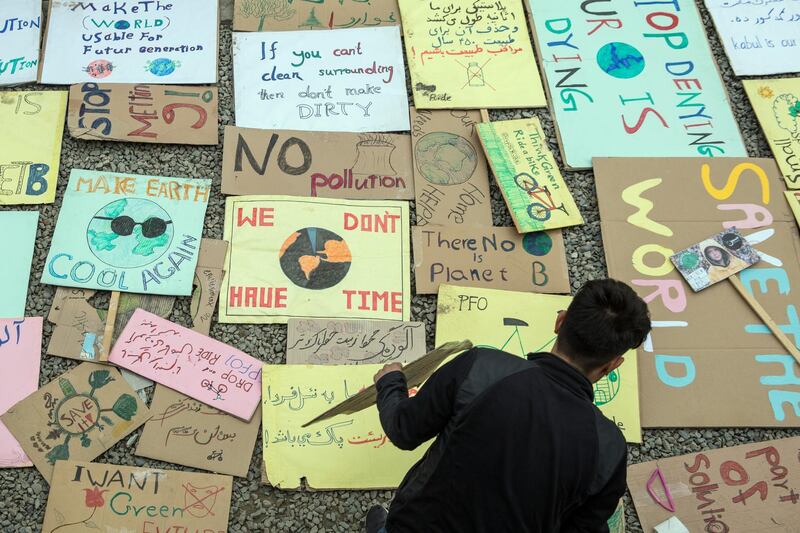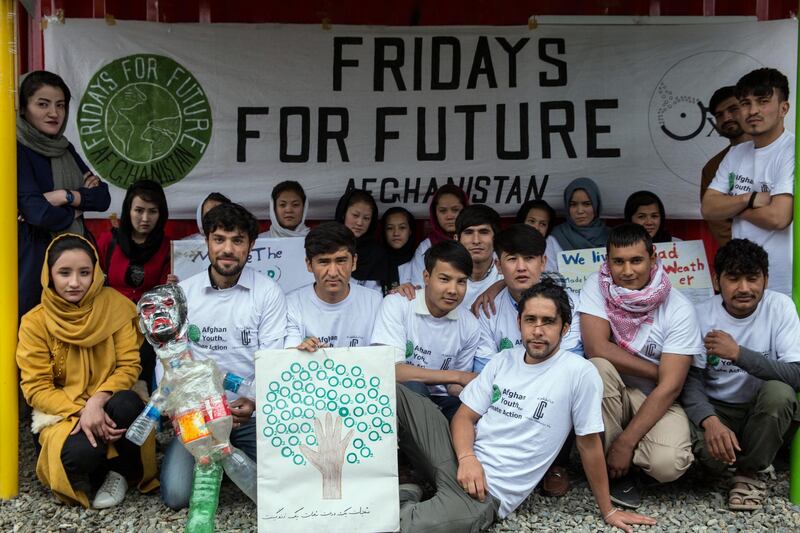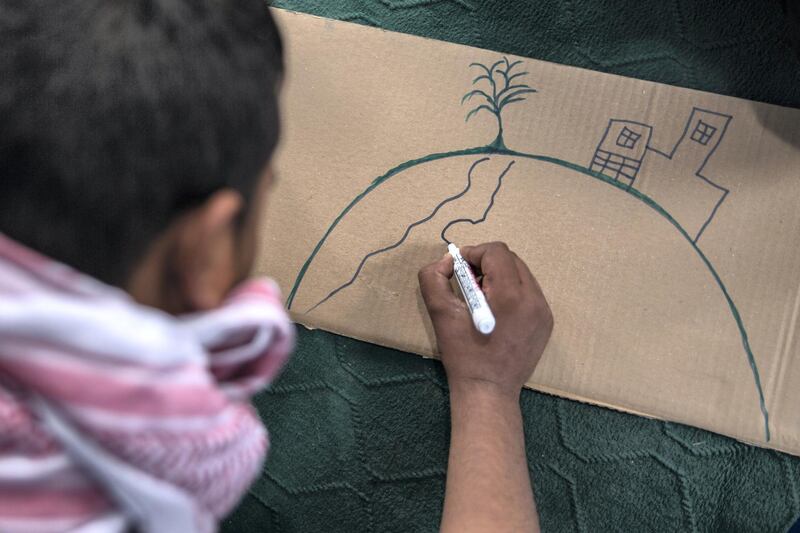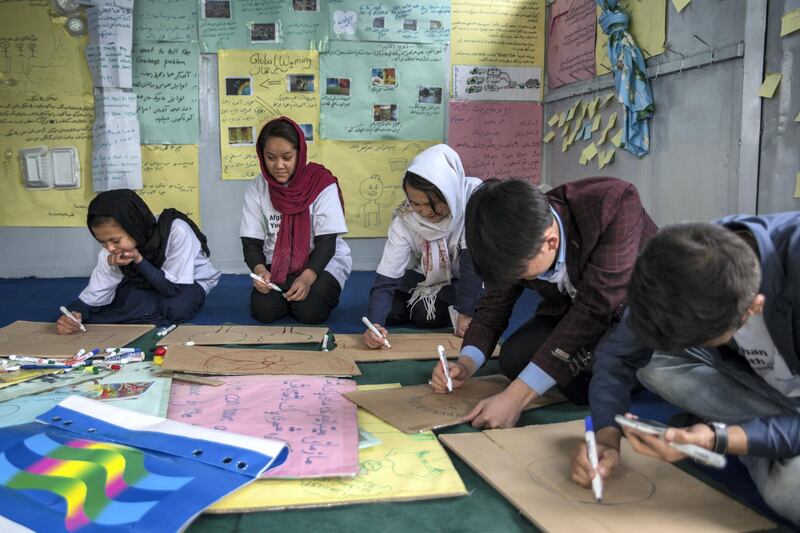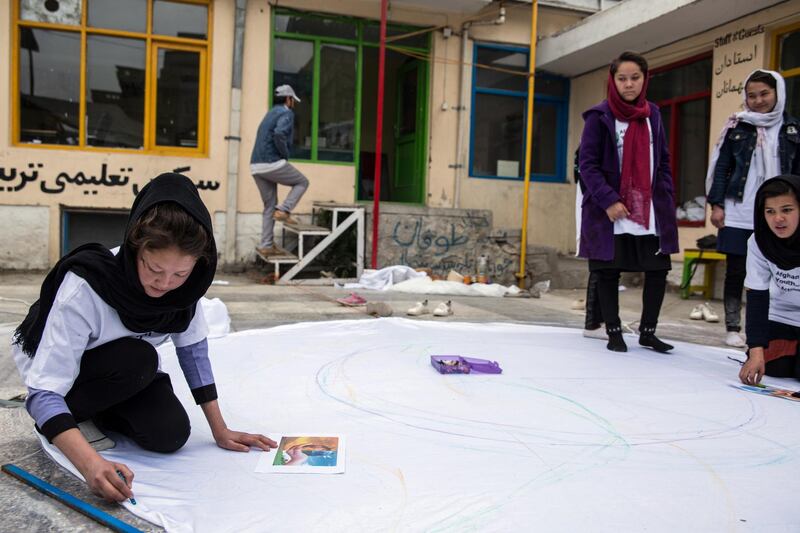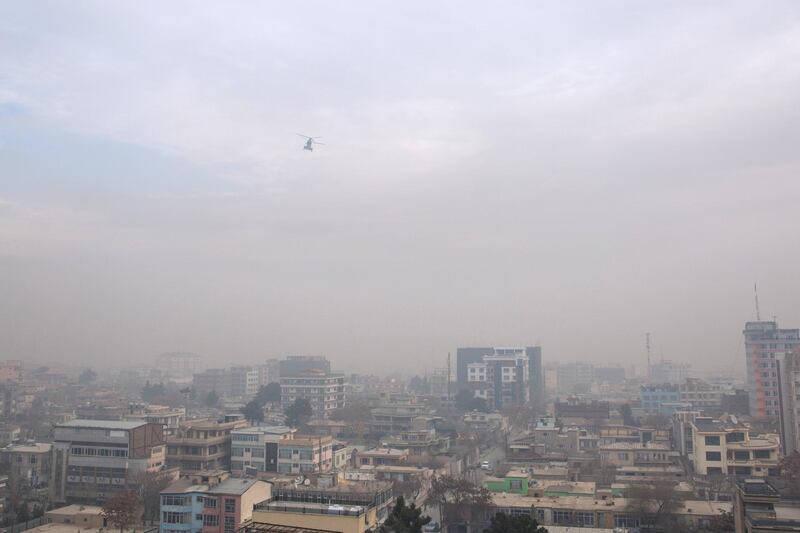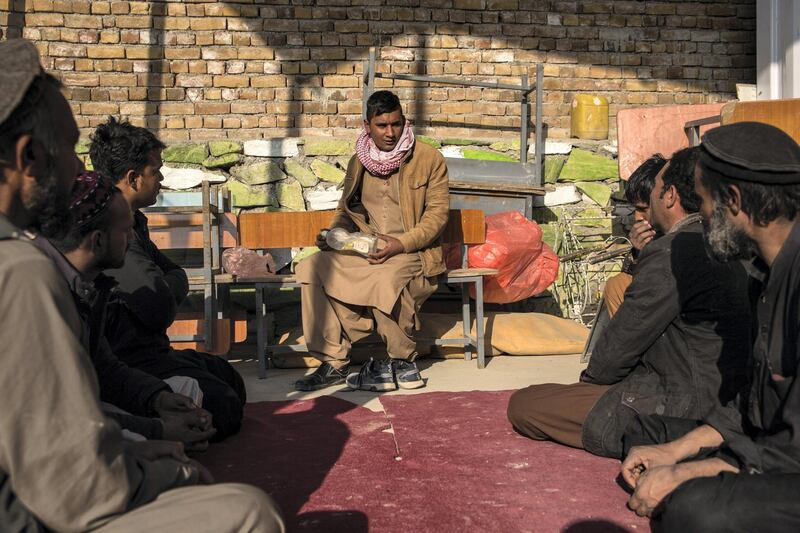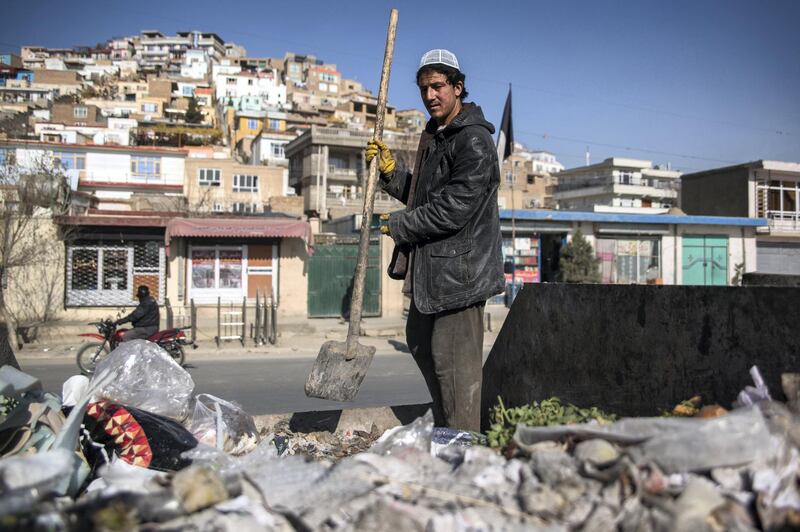Afghanistan might still be at war, but a group of young activists in the country say that climate change is stronger than the gun, a silent killer waging war against the planet.
That’s why, earlier this summer, about 20 teenagers and young adults registered Afghanistan’s Fridays for Future chapter, calling on the government and the Afghan people to consider the consequences of climate change. They organised demonstrations and started running recycling workshops at schools and orphanages.
“Many people already advocate for peace in Afghanistan, but climate change is the biggest war we’re fighting,” explains Fardeen Barakzai, 24, the country chapter’s founder.
Fridays for Future originally started in August 2018, when Swedish teen Greta Thunberg staged a one-person climate strike outside her country’s parliament. It has since become an international movement.
In September, Afghanistan’s climate activists took to the streets for the first time as part of a global climate strike, simultaneously held in cities worldwide. Around 100 demonstrators walked silently with bright posters held up in the air, their group protected by 21 armed soldiers.
“Nothing is easy here,” Mr Barakzai sighs. ‘’In Europe, you can have big demonstration without any problems. In Afghanistan, you have to plan ahead if you want to stay safe and avoid being attacked.”
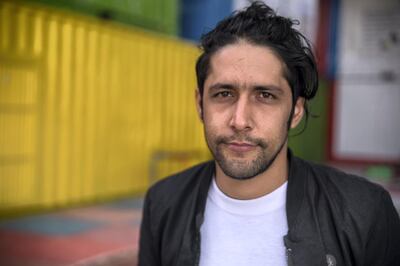
What is easy though, he says, is working together with a driven group of activists from all across the city who have dedicated their time and energy to Fridays for Future.
“The war has brought desperation, but this group motivates me and spreads positive energy in an otherwise tough place,” he says.
Climate change has taken a toll on the 37-million strong nation that sits nestled at high altitude in the Hindu Kush mountains.
Last year, the United Nations recorded around 250,000 people displaced by heavy drought in the west of the country. Flash floods in the same region killed at least 35 people earlier this year in March.
Many people in the western provinces of Herat and Badghis continue to live in temporary housing or tents, far away from their villages, displaced by the consequences of climate change.
In the capital Kabul, home to an estimated 6 million people, heavy pollution contaminates the air, especially during winter, when houses and apartment blocks are heated with coal, wood and – for those who can’t afford either – plastic and old tires.
The country’s Ministry of Public Health says that over 3,000 people die each year from pollution-related illnesses in Kabul and more than 70 per cent of patients in hospital suffer from respiratory tract infections and other breathing issues.
While not all of these can be directly linked to aid pollution, many can.
“Climate change has increasingly become a problem, but awareness on the issues is largely lacking,” explains the National Environmental Protection Agency’s spokesperson Laila Samani. “We’ve started several campaigns to reduce plastic and save water, but both funds and research are lacking.”
On a quiet street in west Kabul, behind a brick wall and metal gate, the Fridays for Future activists have set up camp, their offices are a cluster of brightly-coloured shipping containers decorated with posters and art made from recycled trash. Hidden within the bustling city, they have quietly become a loud voice in Kabul.
A cluster of students sits in a corner, pens in hand as they write messages onto cardboard posters.
“For me, it was the piles of garbage across the city that started bothering me. We’ve watched young people demonstrate all across the world, so why not in Afghanistan” asked Fereba Noori, a 22-year-old university student. She’s partnered with a small group of performers and together they stage theatre plays across Kabul that addresses climate change, global warming, pollution and waste management.
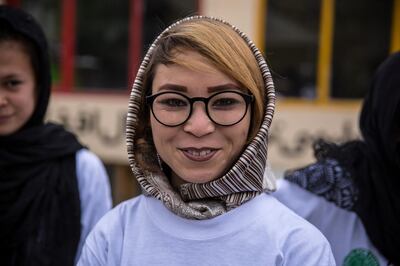
With new residents arriving on a daily basis, trash has quickly become a problem in Kabul.
Between 2,500-2,800 metric tonnes of garbage are tossed away every day, according to the municipality, much of which ends up on the city’s only landfill in the eastern outskirts. The site is protected by 60 armed guards and with toxic waste seeps into the ground.
“There’s a lot of money in garbage – it’s Afghanistan’s black gold,” says Wahid Agha, a 20-year-old member of Fridays of Futures who decided that staging protests wouldn’t be enough for him.
Mr Agha, who was born a refugee in Pakistan and returned to his home country at age 7, continues to live in a tent that he rents for an annual 7,000 Afghani ($90) in Kabul-s Kart-e-Naw area, an area home to families who were either displaced within Afghanistan or have returned from abroad.
“I decided to bring Fridays for Future to our camp and have started running workshops on recycling and waste management here. Instead of burning trash to keep warm, I teach people to sell it and use the money to purchase firewood,” he says. “Plastic is waging war against our people and we have to fight back.”
In his camp, a cluster of mud houses and tents connected by unpaved roads, Mr Agha has set up a small recycling centre where he offers advice to his neighbours. “For the kids here, it’s a great opportunity to see that there is life beyond the camp. Many grow up collecting garbage, but it doesn’t have to be that way. I want to break that cycle,” he says.
“The energy of our group is boundless and contagious,” says Mr Barakzai, who grew up a street child himself, working in markets, selling toilet paper and polishing shoes. “I worked during the Taliban time and during Karzai’s time,” he says, referring to Afghanistan’s previous president, Hamid Karzai. “Kabul has always faced environmental challenges, there was no difference.”
But awareness has steadily been growing across Afghanistan. With small initiatives, Fridays for Future is mushrooming all across Kabul and other cities in the country.
“Living during times of war, I admit we already have a lot on our minds,” Mr Barakzai says. “But we need to add climate change to it as well.”
